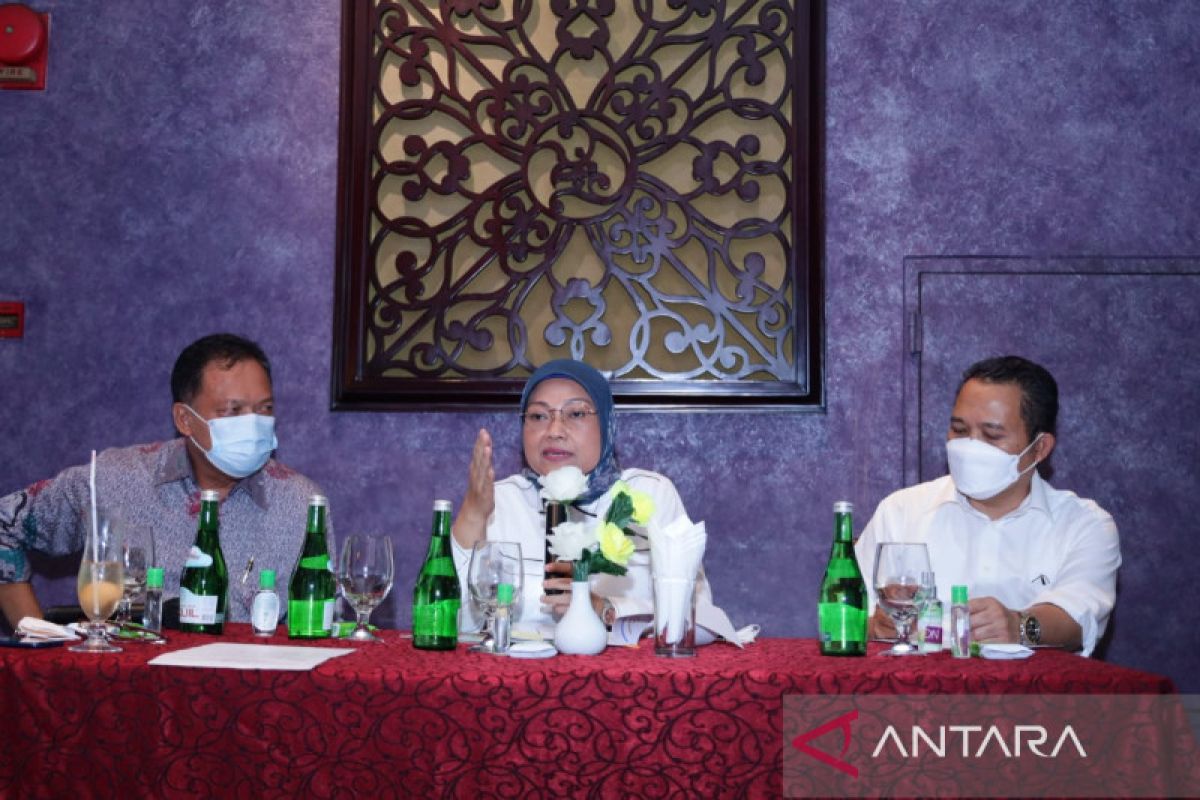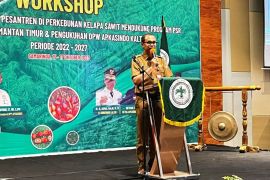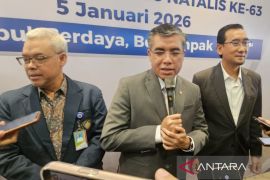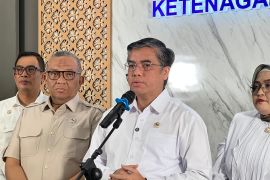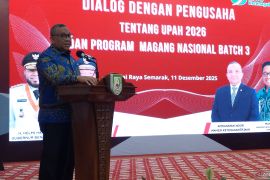Manpower Minister Ida Fauziyah emphasized the need to take these various steps since the palm oil plantation sector had characteristics that were different from other sectors, such as seasonal workers and absorbing a large number of workers, with low levels of skills and education.
"The palm oil sector is one of the industrial sectors that plays an important role in the Indonesian economy. However, recently, the declining performance of palm oil exports and the impact of the COVID-19 pandemic have raised the worst possibilities for workers in the palm oil sector," the minister noted in a press statement received here, Wednesday.
Speaking at a discussion with the Association of Indonesian Palm Oil Entrepreneurs (GAPKI) on June 7, Fauziyah explained that the first step to be readied was to equalize perceptions and interpretations of working relations and workers' protection in the palm oil sector, as regulated in Government Regulation Number 35 of 2021 on Temporary Appointment Work Agreements (PKWT), Outsourcing, Working Time Rest, and Employment Termination.
"Work relations between workers/laborers in the palm oil plantation sector are mostly carried out with the PKWT, including daily workers. Data from Sawit Watch still shows that around 70 percent of workers in the palm oil plantation sector are daily workers. This has an impact on protection and the working conditions," she remarked.
The second step is to obtain information regarding the condition of working relations in the palm oil sector before and after the COVID-19 pandemic.
The third step is to get ideas and recommendations on the implementation of employment relations in improving regulations related to them in the palm oil sector in order to boost work productivity and improve the workers' welfare.
Fauziyah emphasized the need to address several labor challenges in the plantation sector, such as the child labor issue, practice of low wages, and unpaid overtime pay in contrary to the existing laws and regulations.
Related news: Employers failing to pay Eid allowance to be sanctioned: Patria
Moreover, the issue of sectoral wages had re-emerged since there are sectors that grew when most of the others experienced a decline during the pandemic.
"We hope that the palm oil industry/companies would help the government to create industrial relations that are conducive, harmonious, and equal, as well as be able to respond in favor of all sectors," she emphasized.
During the discussion, General Chairperson of GAPKI Joko Supriyono affirmed that his side supported the government's policy on employment in the palm oil plantation sector.
"We are all committed to supporting the regulations set by the government," he noted.
Related news: Government to protect 16 million palm oil industry workers
Translator: Prisca Triferna V, Resinta S
Editor: Rahmad Nasution
Copyright © ANTARA 2022
